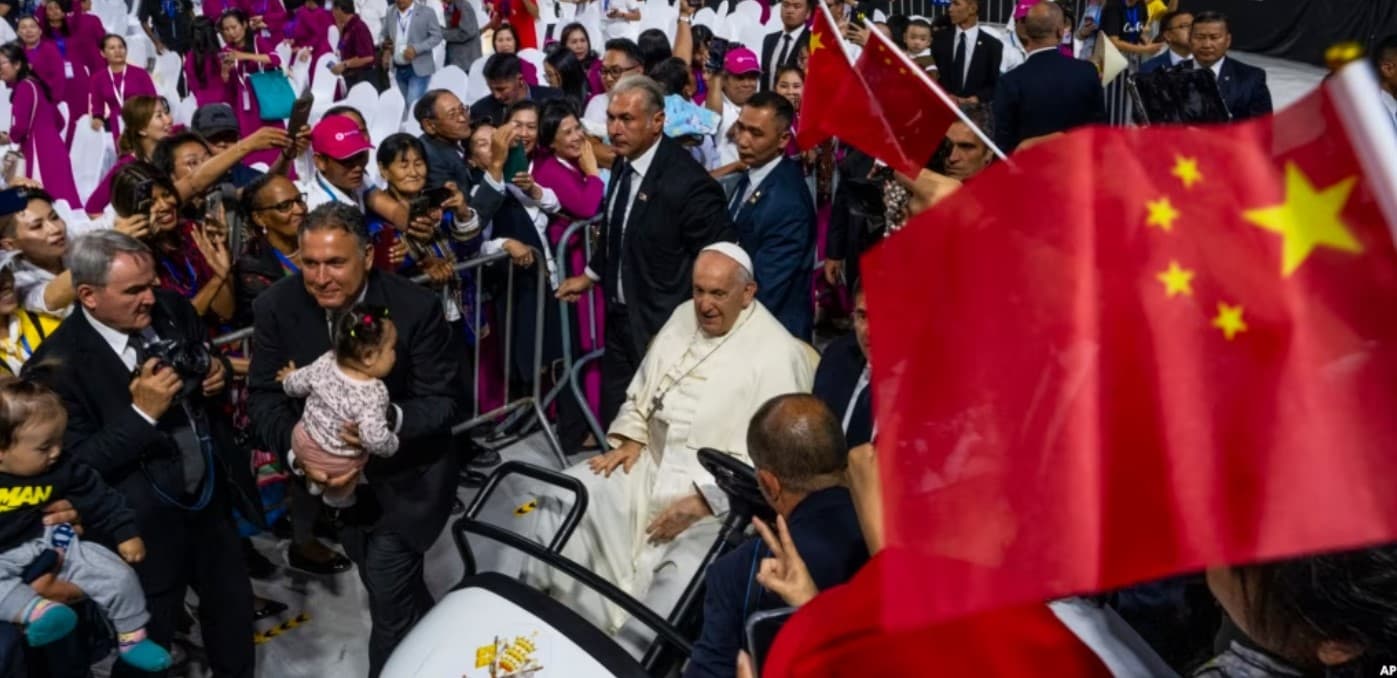ROME – Pope Francis’s personal envoy for the Ukraine conflict met a senior official of the Chinese government in Beijing Thursday, discussing not only the broader question of a path to peace but also how to restart a deal to allow the exportation of grain which Russia abandoned in July.
The meeting between Italian Cardinal Matteo Zuppi and Li Hui, China’s Special Envoy for Eurasian Affairs, was considered remarkable not merely for the issues discussed but for the mere fact it happened at all, given that the Holy See and the People’s Republic of China do not enjoy diplomatic relations.
The encounter between Zuppi and Li amounted to the first-ever meeting between a Vatican envoy and a representative of the Chinese government in Beijing. China’s capital. British Archbishop Paul Gallagher, the Vatican’s foreign minister, met Chinese Foreign Minister Wang Yi in 2020, but that encounter took place in Munich.
According to a Vatican statement, the meeting “unfolded in an open and cordial climate, and was dedicated to the war in Ukraine and its dramatic consequences, underlining the necessity of combining forces to favor dialogue and to find pathways that lead to peace.”
“In addition, the problem of food security was addressed, with the hope that the exportation of grains may soon be guaranteed, above all in favor of countries most at risk,” the statement said.
The reference was to a deal brokered in July 2022 to permit shipments of grain out of Ukraine’s Black Sea ports, given that Ukraine is among the world’s largest suppliers of crops such as sunflower oil, barley, maize and wheat, and that developing nations in particular are reliant upon those shipments.
Russia backed out of the agreement in July, claiming that promises it would also allow Russia to increase its own exports of grains and fertilizers have not been realized due to the impact of Western sanctions.
On Wednesday, a spokesperson for China’s Foreign Ministry said Beijing welcomed Zuppi’s mission, which had previously taken him to Kyiv, Moscow and Washington, D.C.
“On the issue of Ukraine, China has always been committed to promoting peace talks,” said spokesperson Mao Ning. “We are ready to work with all parties and continue to play a constructive role in promoting de-escalation and cooling of the situation.”
Zuppi, 67, is the president of the Italian bishops’ conference and a veteran of the Community of Sant’Egidio, who helped negotiate a set of peace accords in 1992 that ended Mozambique’s long-running civil war. He was tapped by Pope Francis in May as his personal representative on the conflict in Ukraine.
Li, 70, is more or less the Chinese equivalent of Zuppi, a veteran diplomat who was named in April as China’s special representative on the Russia-Ukraine war. He visited Kyiv in May.
Ukraine’s Greek Catholic bishops, who recently wrapped up a meeting of their governing synod in Rome, appeared to welcome Zuppi’s efforts.
“I think the mission in Beijing of Cardinal Zuppi is important,” said Major Archbishop Sviatosalv Schevchuck in comments to reporters Thursday.
“China has always declared to be open to peace, even if we don’t know exactly what the Chinese [idea of] peace is,” Schevchuck said.
Zuppi had met with the Ukrainian bishops shortly before he departed for his meetings in Beijing.
“A just peace, based on what we understood from Cardinal Zuppi, is one which respects certain moral principles and principles of international law,” Schevchuck said. “In this case, international law has been crushed by the law of force.”
“Zuppi spoke of a secure peace, a peace that will endure over time,” he said.
Relations between the Vatican and China at a diplomatic level have warmed since 2018, when Rome and Beijing signed a controversial deal on the appointment of Catholic bishops. Although critics insist that China has violated the agreement on at least two occasions, naming new bishops without the pope’s consent, defenders of the accord nevertheless insist it’s critical to overcoming a de facto schism between an underground Church in China and one recognized by the government.
One sign that Zuppi’s peace mission is considered a success is that a small kerfuffle broke out between Italy and the Vatican just before he departed for Beijing over who can claim credit for it.
Italian Defense Minister Guido Crosetto recently claimed during a public event organized by an Italian newspaper that he had played a key role in making Zuppi’s visit to Kyiv in June possible, saying he had “pressured” Ukraine President Volodymyr Zelensky to meet the papal envoy.
That brought an indirect rebuke from Andrea Riccardi, a former minister in the Italian government and the founder of the Community of Sant’Egidio, who said that Zuppi’s mission “was possible due to the diplomacy of the Holy See.”
Prior to departing for Beijing, Zuppi met with Italy’s Foreign Minister Antonio Tajani when both men were in Berlin for a conference organized by Sant’Egidio on the theme of “the audacity of peace.”















